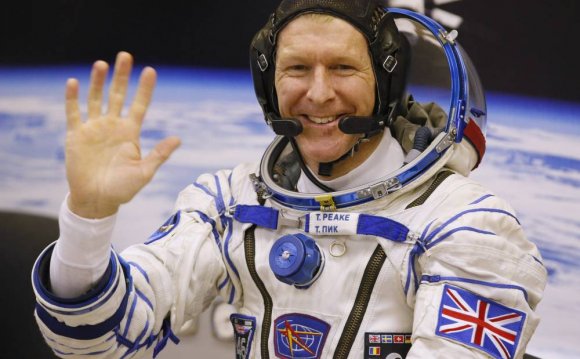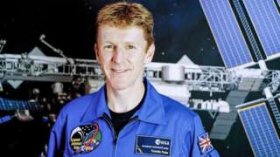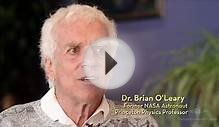
 Image copyright European Space Agency Image caption Tim Peake will go to the ISS as part of the Principia mission
Image copyright European Space Agency Image caption Tim Peake will go to the ISS as part of the Principia mission
The European Space Agency's first British astronaut, Tim Peake, is completing the final preparations before his mission to space.
He'll be blasting off in December and will spend six months on-board the International Space Station (ISS).
So, we thought now would be a good time to tell you our top astronaut facts...
Top facts
- An astronaut is what Western countries, like the UK and America, call a person who goes into outer space. The Soviet Union use the word cosmonaut. Astronauts are called 'taikonauts' in China or 'spationaute' in France. The word 'astronaut' comes from the Greek words astron, meaning 'star', and nautes, meaning 'sailor'.
- The first living thing sent into space was a stray dog called Laika, chosen and trained by Russia to see how the journey might affect a person. Other animals to go into space include Ham the Chimp, and Gordo the Monkey.
- Yuri Gagarin, from the Soviet Union, was the first human to travel into space. His flight took place on April 12 1961, on-board the spacecraft Vostok 1.
- Neil Armstrong, an astronaut from the United States, became the first person ever to walk on the moon. His famous moon walk happened on July 20 1969. He travelled on Apollo 11, where the on-board computer was less powerful than a modern smart-phone.
- An astronaut can be up to two inches taller after returning from space, because their spine expands in zero gravity.
- Astronauts see a sunrise every 90 minutes. The ISS orbits the Earth at about 17, 000 mph - that's pretty fast. But, and astronauts clock still runs to a 24-hour day - and they work from 9am until 5pm, to keep their days ordered.
- Astronauts can be quite clumsy when they come back down to Earth. Several astronauts have reported that when they come home they find they drop objects like cups. This is because they're used to living in zero gravity and the weightless environment in space.
Source: www.bbc.co.uk
RELATED VIDEO

Top 10 facts about the ISS as astronaut Timothy Peake ...

NASA Astronaut Group 4 Top # 5 Facts









